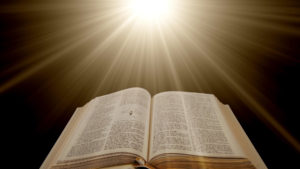
Sacks saw society through the ages as oscillating between concern for the group and the affirmation of the individual. Traditionally, in Africa and elsewhere, the need to survive drove people to submit their own interests to that of the group, the tribe or the nation. When society reached stability and people were free to reflect on what they wanted at a deeper level than simplE survival, individuals began to emerge from the group and question ‘tradition’ and affirm that things do not have to be as they are now.
This happened in the Reformation in the sixteenth century and in one way or another has continued right up to the present with the ‘Black Lives Matter’ movement. The dominance of the ruling class, the people with power, is challenged by individuals who in their turn gather a new ‘tribe’ around them and a new reality emerges. Rabbi Sacks helps us understand how this tension between the individual and the group is being played out in this 21st century.
So, he saw society moving from ‘we’ (responsibility to society as a whole) to ‘I’ (concern with the individual self) and he says this led to a counter move back to the group in the form of nationalism and racism where individuals felt once more under threat and submitted to new authorities who promised protection. This again led to a further assertion of the individual in the 1960s and finally to ‘identity politics’ in our own day, where people are again fearful and populist leaders play on these fears to carve out new autocracies. Trump is not the only one of these leaders but he is the most powerful and dangerous.
Sacks’ point is that this leads, in the words of his obituarist in The Tablet, Norman Solomon, ‘to the abandonment of traditional codes of morality by which society was governed and through which it maintained stability. Power and economics, he argues, cannot guarantee stability without a third element, civil society, the locus of morality, in which we all share’.
Then comes the punch line from Sacks himself: ‘By being what we uniquely are, we contribute to society what only we can give. That is a way of being Christian or Hindu or Muslim or Jewish while being proud to be English (or Zimbabwean) … If there is no such thing as a national moral community, if civil society atrophies and dies while all that is left are the competitive areas of the market and the state, then liberal democracy is in danger’. Solomon concludes, ‘above all Rabbi Sacks was deeply concerned with the moral values of the society in which he lived, and he was fully committed to playing his part to bring about the civil society through which those values could be implemented.
This Sunday we celebrate Christ the King, whose statue often appears on TV dominating the city of Rio de Janeiro in Brazil. The gospel tells us we will be judged on basic things; ‘I was hungry and you gave me food, a stranger and you made me welcome’. These are moral values and we are not living them.
22 November 2020 Christ the King Ezk 34:11…17 1 Cor 15: 20…28 Matt 25: 31-46
Post published in: Featured

